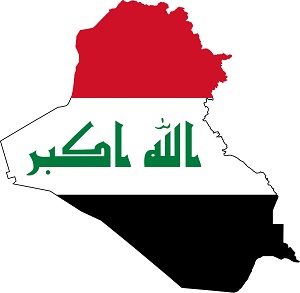U.S. Gives Iraq Sanctions Waiver for Iranian Gas Imports
BAGHDAD (AP) — The United States has granted Iraq a 45-day sanctions waiver enabling the country to continue importing vital Iranian gas and electricity supplies, two Iraqi officials said on Wednesday.

The U.S. has applied stringent sanctions on Iran that punish any country trading with it.
The issuance of the waiver comes amid fraught U.S.-Iraq ties following an American drone strike that killed top Iranian general Qassem Soleimani near Baghdad airport on Jan. 3.
Washington had expressed willingness to extend the sanctions waiver, which was due to expire this week, Iraqi officials told The Associated Press, on the condition that Iraq provide a timeline detailing a plan to wean itself off of Iranian gas dependence.
The two officials said the U.S. issued the waiver anyway and offered the possibility of a longer time period if Iraq produces the requested timeline. They spoke on condition of anonymity because they were not allowed to speak publicly about the matter.
The U.S. State Department had no immediate comment.
The new waiver gives Iraq just 45 days to show Americans that it is making good on conditions to boost domestic gas supply or find alternative sources for power, and lessen its reliance on Iran. The previous waiver, issued in October, had given Iraq 120 days.
A senior Iraqi official with knowledge of sanctions negotiations with the U.S. said the period could be extended again once Iraq submits a technical timetable detailing how it plans to meet gas independence.
“It happened that the United States of America gave us a period of 45 days, and it could be extended in the event of us submitting a timetable regarding Iraqi gas investment,” the official said. “Until now, we have not sent them a timetable.”
Iraq remains highly dependent on Iranian natural gas to meet electricity demands, especially during the scorching summer months when imports account for a third of consumption. Late payments by Baghdad for Iranian power and gas have resulted in interruptions in recent years. In the summer of 2018, that was one factor that lead to destabilizing protests in the southern oil-rich province of Basra.
The U.S. waiver enables Iraq to avoid penalties while paying Iran billions of dollars for energy imports. It has been granted successively since November 2018, when the Trump administration re-imposed sanctions on Iran.
The Iraqi Cabinet moved toward placating Washington’s conditions to renew the sanctions waiver in late January, by approving six oil contracts awarded by the Oil Ministry in April 2018 that would boost domestic gas supply in over two years, according to a Cabinet statement on Jan. 23.
Related News
Related News

- Keystone Oil Pipeline Resumes Operations After Temporary Shutdown
- Biden Administration Buys Oil for Emergency Reserve Above Target Price
- Freeport LNG Plant Runs Near Zero Consumption for Fifth Day
- Enbridge to Invest $500 Million in Pipeline Assets, Including Expansion of 850-Mile Gray Oak Pipeline
- Williams Delays Louisiana Pipeline Project Amid Dispute with Competitor Energy Transfer
- Evacuation Technologies to Reduce Methane Releases During Pigging
- Editor’s Notebook: Nord Stream’s $20 Billion Question
- Enbridge Receives Approval to Begin Service on Louisiana Venice Gas Pipeline Project
- Russian LNG Unfazed By U.S. Sanctions
- Biden Administration Buys Oil for Emergency Reserve Above Target Price




Comments